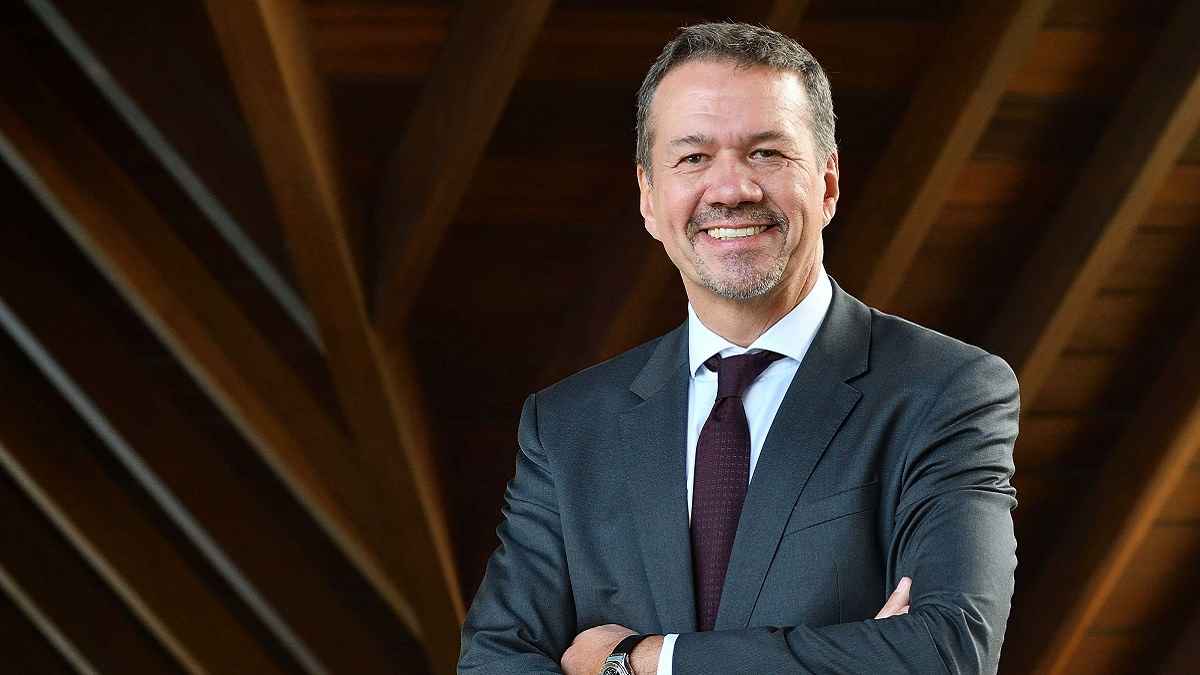As MCB begins the latest phase of its international transformation, its new CEO, Thierry Hebraud, opens up about the challenges of heading a bank with a dual footprint and talks about how the financial institution has managed to make the most of Mauritius’s International Financial Centre, an important source of the bank’s financial performance
PORT LOUIS, Mauritius, June 10, 2024/APO Group/ —
In a video interview released in June 2024, MCB’s new CEO, Thierry Hebraud, speaks of his biggest challenge for the bank he heads. MCB’s (https://www.MCB.mu) foray into Africa and the rest of the world, which dates back over a decade, took a new turn these past couple of years, with more than two-thirds of its turnover—and profits—generated outside its home country, Mauritius.
Mr Hebraud’s appointment as the bank’s CEO earlier this year and that of MCB Group’s CEO, Jean Michel Ng Tseung, herald a new turn for the 185-year-old bank, which is rapidly intensifying its operations abroad. The bank’s CEO spoke of his conviction that MCB’s very Mauritian identity is not in question, declaring that “for me, it’s easy to reconcile because we wouldn’t be able to do what we do abroad if we weren’t who we are here in Mauritius”. The fact is, he adds, that “I now have two banks to manage. I have a local bank and an international one, and my challenge is to ensure that they can both serve their respective clients in an optimal way locally and internationally, and this is a work in progress”.
Thierry Hebraud went to lengths to stress that the importance given to MCB’s local operations isn’t commensurate with its share of profits generated; “it’s the Mauritian bank that has given the means to the international one to develop, and we can only continue to shine abroad if we continue to lead here in Mauritius. One cannot exist without the other.”
When asked about the source of the bank’s profits abroad, its CEO said it owes a lot to the Mauritian International Financial Centre (MIFC), which positions Mauritius as the hub for financial and commercial flows linking Asia, Europe, the Middle East, and the USA with Africa.
The MIFC gives us exceptional visibility and positioning, and we use it in our growth strategy in Africa and beyond
“The MIFC gives us exceptional visibility and positioning, and we use it in our growth strategy in Africa and beyond”, he explains, adding that Mauritius’ decision to create an IFC has been the source of much of the country’s economic transformation. “I think Mauritius is the only real IFC in Africa. It has created many opportunities for the country, and there’s still potential to develop that business further”, he concludes on the subject.
Thierry Hebraud also discusses MCB’s positioning in Africa, saying it is a niche market bank very well-known in specific markets such as Oil and Gas and investments by Private Equity Funds. On the former, he says, “MCB is the leading African bank in the sector, and we are not ashamed of this because we acknowledge that Africa needs an energy mix, including fossil fuels. If all the banks were to stop financing fossil fuels, it would severely jeopardise the development capacity of Africa.”
Private Equity is also an area of great potential for MCB in Africa, where the bank is gaining visibility, says its CEO. “We have started to be well recognised in that segment in Africa, taking advantage of the exit of major international banks from the continent. We have become known thanks to our competence and the quality and uniqueness of our offers in that sector”, Mr Hebraud says.
On the home front, Thierry Hebraud says MCB’s commitment to Mauritius’s development remains unwavering. However, he cautions against focusing solely on short-term returns. He recalls the challenges faced by the textile industry, which initially went through difficult times but ultimately led to the emergence of a middle class in the country. “MCB stood steadfastly by its clients in that sector, and today, the country continues to benefit from it. That’s a good example of how MCB has impacted the overall development of the country.”
He says that COVID-19 was another good example of how intricately linked MCB and Mauritius are. MCB and other banks worked closely with the government, and a potentially catastrophic situation was turned around. Today, Mauritius’s economy is thriving.
The CEO adds that MCB has also taken the lead in its commitment to assist the country’s transition to a low-carbon economy by offering lines of credit at preferential rates to help the country adapt to climate change. Mr Hebraud says adaptation is urgent, with beach erosion threatening the tourism industry, currently contributing about 25%, both directly and indirectly, to the country’s GDP. He adds that refocusing on the development of the local economy and reducing Mauritius’ dependency on imports is also an important aspect of MCB’s support to the economy.
This support also takes the form of assistance to what Thierry Hebraud calls “the irrigators” of the economy—Small and Medium Enterprises. He explains how the bank’s different partnerships—Made in Moris and Punch in particular—seek to help connect SMEs to strategic partners so that they can optimise their performance.
Distributed by APO Group on behalf of The Mauritius Commercial Bank Ltd (MCB) Group.


 Energy5 days ago
Energy5 days ago
 Business5 days ago
Business5 days ago
 Energy3 days ago
Energy3 days ago
 Business3 days ago
Business3 days ago
 Business3 days ago
Business3 days ago
 Energy2 days ago
Energy2 days ago
 Business3 days ago
Business3 days ago
 Energy2 days ago
Energy2 days ago












